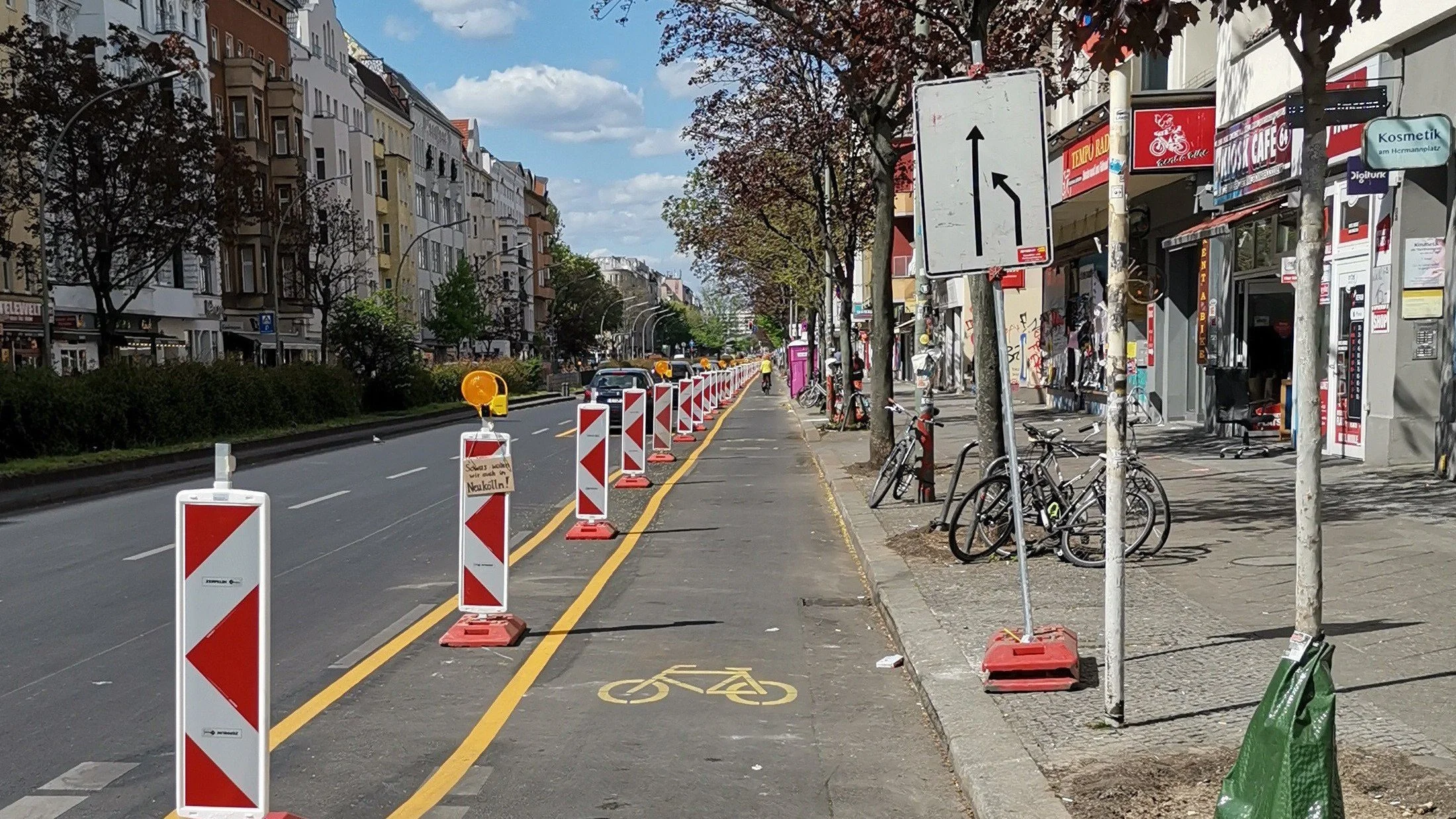3 Ways National Bike To Work Day Can Miss the Mark
Our local metropolitan planning organization recently sent out an email informing people that May 17 is National Bike To Work Day. I work mostly from home, so the invitation isn’t super relevant to me, but there are some important points I would like to address about this sort of initiative. While I love biking, in the absence of sufficiently safe infrastructure, I find these kinds of annual events annoying and ingratiating. You might think that's harsh, but hear me out. Here are three ways National Bike to Work Day can fail to encourage bikeability:
It Ignores The Reasons People Don't Bike
First, it ignores the reasons people don't bike, assuming that people only need to be nudged toward the activity with a dedicated day. The reality for most people is that biking is just too much of a risk. In my town, hardly anyone bikes for a variety of sensible reasons, and I don’t think this would change for a single day. I know a handful of men from church who commute to work this way, but it’s considered an adventurous choice and all of them have endured an element of danger as a result.
That danger won’t magically disappear on May 17, and I doubt people who consider biking too dangerous are going to hop on two wheels because someone at city hall posted a flier about it. Biking anywhere in Waco requires a superhuman willingness to navigate busy streets with unprotected or nonexistent bike lanes that force them to share lanes with notoriously speedy drivers. Even if you wanted to take the “safer” streets through the neighborhoods, you’d still need to be on guard against fast drivers taking advantage of the wide lanes. More importantly, you’d need to be on the lookout for the frequent stray dog, often a pit bull.
It Assumes People Want to Bike
Second, Bike to Work Day assumes that people actually want to bike to work. For most people, biking to work isn’t an attractive idea unless they can choose a route where they feel safe riding at a leisurely pace that won't make them break into a heavy sweat. Sweating and not being able to shower or having to change clothes in a work bathroom are the two obstacles to biking to work that I’ve heard the most from people. In reality, bike-commuting is probably more attractive for smaller errands like running to the grocery store, library, pub or coffee shop. But this kind of bike commuting is unrealistic given the nature of zoning in most of our cities that prevents these kinds of destinations from existing close to where most people live.
It Lets Public Officials Off the Hook
Third, this kind of faux-holiday makes it easy for city leaders to feel like they’re doing something meaningful to make bike commuting more feasible. Actual meaningful efforts would likely require a level of political will that does not exist. Biking used to be a viable option for getting between Waco neighborhoods or to local neighborhood businesses — especially for children. But for the rest of us, the lack of serious infrastructure investment makes it clear that actually making bike commuting viable is simply not a priority. It’s easy to create an illusion of attention and care by pointing to fliers about Bike to Work Day.
Real Ways to Promote Bike-Commuting
Real leadership would be taking this dedicated day to talk to people about biking, seeking to truly understand their thoughts on this mobility option. It would be installing temporary bike lanes to common destinations that people want to visit. It would be creating pop-up bike routes that are entirely closed to cars.
These types of measures can help tackle the exposure bias that most people probably have against biking, while also fostering a real conversation about mobility alternatives and what improving them would look like. But without a willingness to address the underlying reasons people avoid biking, without a willingness to ask people what would make biking more attractive, and without the political determination to actually invest in solutions, we’ll be stuck with the status quo: nobody biking except for a few brave souls.
Maybe Bike to Work Day can be fun for folks living in cities with great infrastructure who’ve simply never taken advantage of it. But for the majority of us, Bike to Work Day isn’t going to magically make biking more desirable, safe or efficient. It would be a better use of energy for transportation leaders to actually think about fixing those problems rather than promoting an unrealistic trip once a year. Citizens don't want to see a flier encouraging them to put themselves in a dangerous situation. They want to see real dedication to solving the safety, zoning and infrastructure issues that deprive people of the option to bike year-round.
Do you want your city to take real action to increase bikeability? Click below to find a local conversation near you!







Tiffany Owens Reed is the host of The Bottom-Up Revolution podcast. A graduate of The King's College and former journalist, she is a New Yorker at heart, currently living in Texas. In addition to writing for Strong Towns and freelancing as a project manager, she reads, writes, and curates content for Cities Decoded, an educational platform designed to help ordinary people understand cities. Explore free resources here and follow her on Instagram @citiesdecoded.